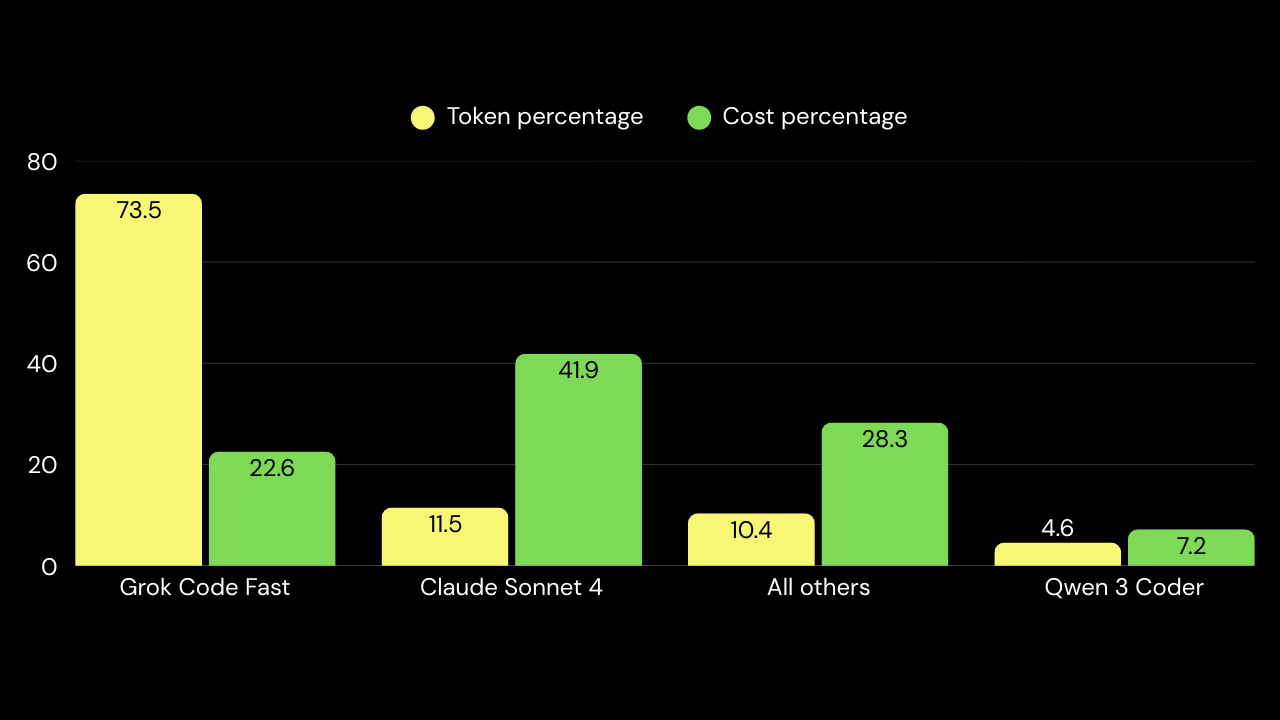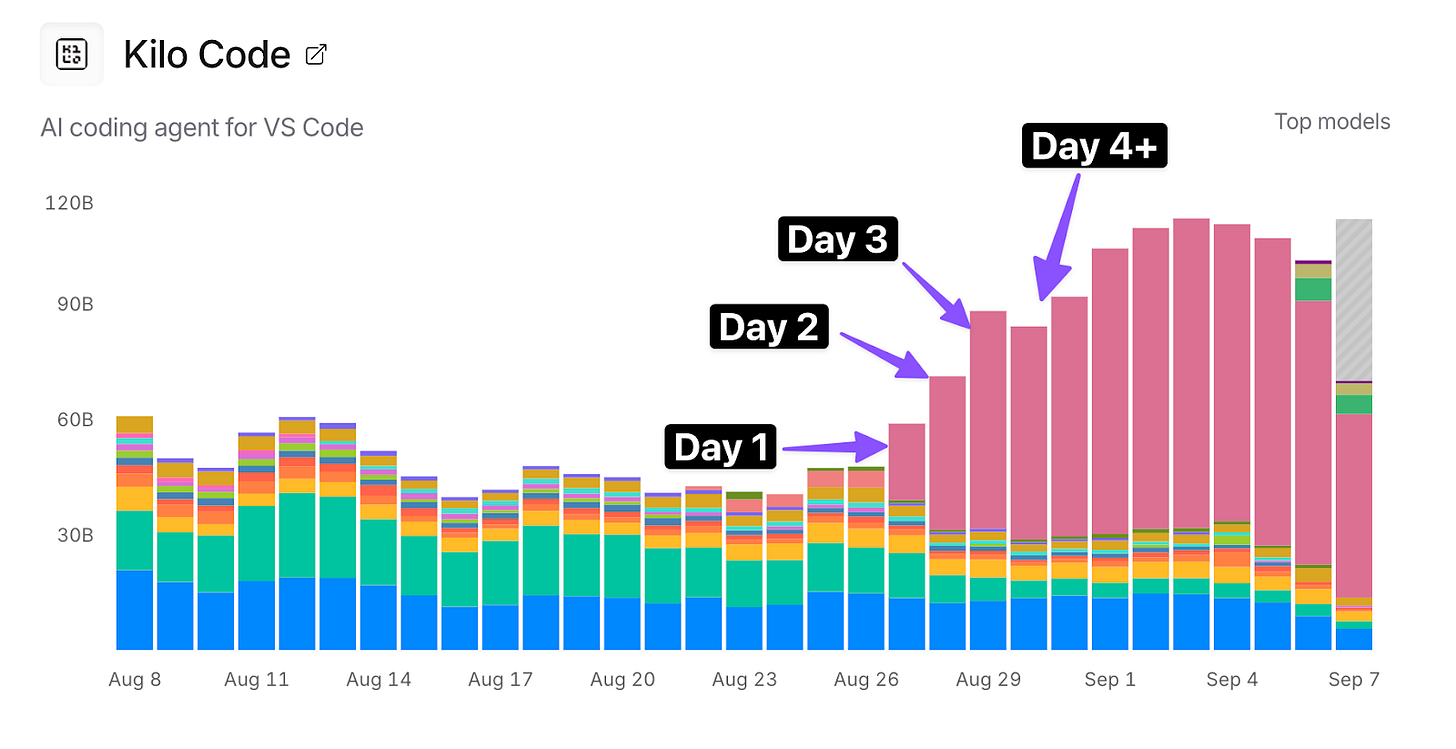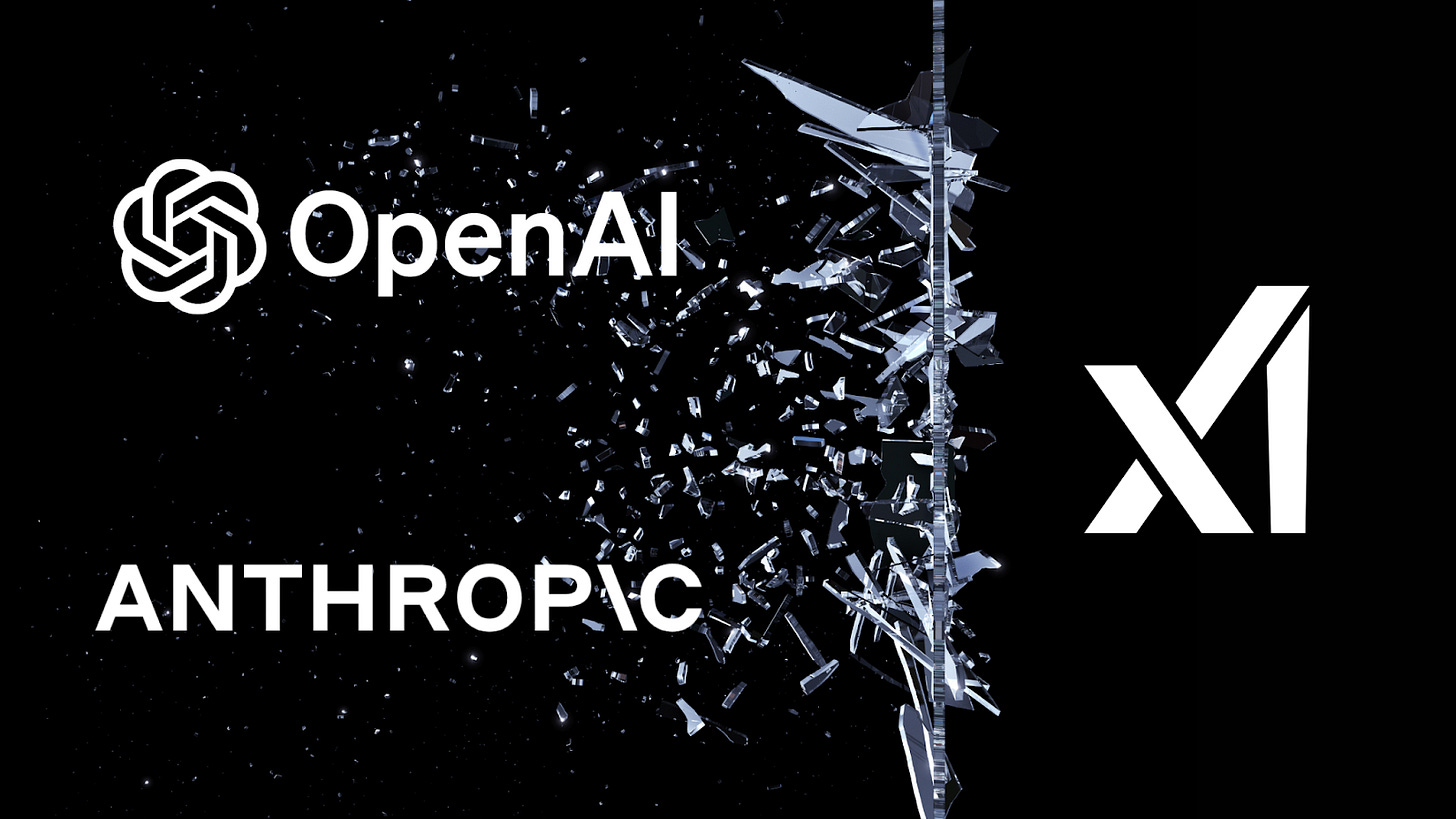How xAI's Grok Code Fast Could Shatter the OpenAI-Anthropic Duopoly
How xAI's Grok Code Fast disrupted the AI development landscape by targeting price-conscious developers with fast, practical code generation
I knew that it was a two-horse race between OpenAI and Anthropic for the hearts and minds of developers. I'd been watching the Kilo Code metrics for months, and the pattern was clear: Claude and GPT models trading dominance, with everyone else fighting for a distant third place.
Then the last two weeks happened.
In just days, xAI's Grok Code Fast went from nowhere to processing 550 billion tokens on our platform. Not because every developer suddenly switched, but because something more interesting occurred. Developers who'd been sitting on the sidelines, price-conscious and waiting, suddenly had their moment.
When "Good Enough" Becomes Great
While Sam Altman was admitting to reporters that OpenAI "totally screwed up" GPT-5's launch, forcing them to restore GPT-4o after user revolt, xAI was executing something brilliant in its simplicity.
GPT-5 users complained the model felt "colder," like an "overworked secretary." One Reddit user wrote: "I literally lost my only friend overnight with no warning." The backlash was swift enough that OpenAI reversed course within days.
Meanwhile, xAI didn't promise revolution. They offered something far more practical: a model fast enough at code generation (100-200 tokens/second) to make previously expensive projects suddenly feasible. A “speedy daily driver.” And for three weeks, it was free.
Why This Changes Everything
For months, I'd watched the same pattern: developers choosing between OpenAI's long history and Anthropic's agentic capability, with pricing as a secondary concern for those with corporate cards. What xAI proved was that there was an entire shadow market of developers waiting for the right moment:
Started a third project last week and am only 10% complete. It is a big one. Cleaned up the first project's code…and added a new feature to the second project.
All three were ideas (dreams) for over 12 years. Time and lack of skills kept me from attempting to start. Now I rush home from the day job so I can tinker with the code.
From Reddit
The timing was surgical. GPT-5's personality crisis created the opening, but the real disruption was simpler: give developers exactly what they need (fast code completion) at a price point (free, then competitive) that turns "someday" projects into "today" projects.
In fact, using Kilo Code’s internal data and simulated costs of tokens for Grok Code Fast, we can see that even as the usage dwarfed all other models, the simulated cost was still significantly less than the cost of Claude Sonnet 4 over the same period.

The Developer Migration Nobody Saw Coming
The Kilo Code data tells the story:
Day 1: Grok Code Fast appears, modest usage
Day 2: Word spreads through developer Slack channels
Day 3: The explosion begins
Day 4+: 578 billion tokens, capturing 66% of Kilo Code usage

Across OpenRouter, Claude Sonnet 4 dropped from almost 50% market share in the programming category on OpenRouter to less than 17% in the same period. Not because it got worse—but because a massive latent demand suddenly found its outlet.

These weren't developers switching their primary tools. These were developers who'd been priced out, finally able to build those side projects, experiments, and proofs-of-concept they'd been putting off. The three-week free period wasn't generosity; it was market activation.
The Developer-First Future
Here's what both OpenAI and Anthropic missed: developers don't need AI friends. They need tools. While GPT-5 was optimized for personality and Claude focused on safety and nuance, Grok Code Fast was optimized for one thing—helping developers ship code faster.
Why it matters: While OpenAI optimized for personality and Anthropic focused on safety, xAI targeted the people who actually build the applications, integrate the APIs, and decide which models power tomorrow's products.
This isn't just about market share. It's about recognizing that as developers go, so goes the AI industry. We're the ones building the applications, integrating the APIs, and ultimately deciding which models power the next generation of products. The "two-horse race" everyone predicted? It's over. Not because xAI will dominate everything, but because they proved the market isn't what we thought it was.
Connect the dots:
Altman mentioned needing "trillions of dollars" for infrastructure to serve billions of users
xAI proved you don't need to serve everyone—just the right people, the right way, at the right time
There's room for models that do one thing exceptionally well
When xAI's free period ends, some developers will return to their previous tools. But many won't. They'll have shipped code, built products, and formed new habits. Every time they hit a rate limit or see a usage bill that makes them wince, they'll remember that week when coding felt unlimited.
What's next: xAI won't be the only option giving developers that freedom. The open source ecosystem is exploding:
CodeLlama - Getting better monthly
Qwen3-Coder - Running locally on developer machines
Kimi K2 - Self-hosted infrastructure options
Dozens more - Private clouds, local deployment
The stakes: As developers go, so goes the AI industry. The best feature isn't always intelligence—sometimes it's accessibility.


